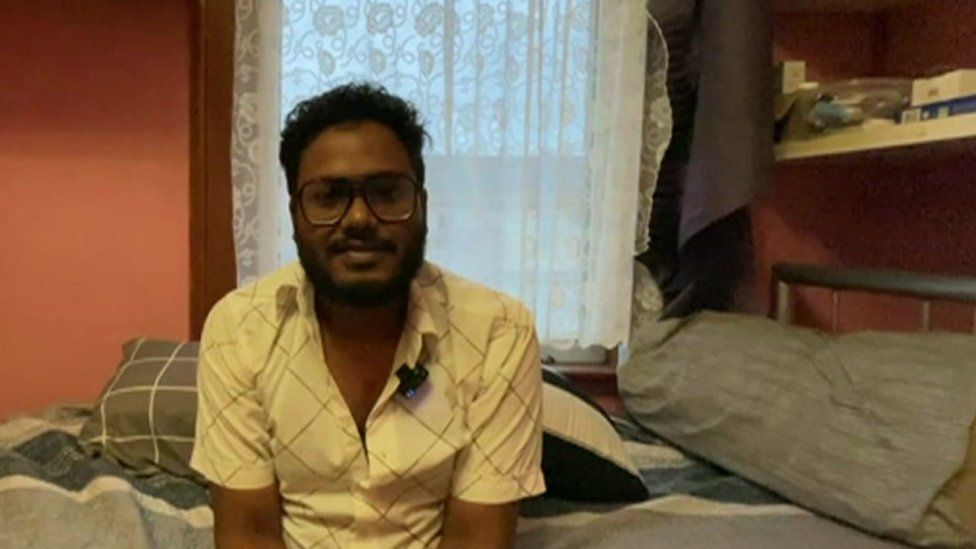-

-
-
Loading

Loading

When Nazmush Shahadat arrived in London from Bangladesh, he found himself without a place to stay. Despite being accepted into a law course, he couldn't afford university accommodation and couldn't find a suitable house to live in. As a result, Mr. Shahadat ended up sharing a small flat with 20 other men, an experience he describes as dark and traumatic. The overcrowded quarters, with multiple bunk beds and constant shift workers, made it impossible for Mr. Shahadat to sleep. Additionally, he frequently suffered from bed bug bites. For the first few months, he was too ashamed to video call his family back home, as he didn't want them to see the deplorable living conditions he was enduring. Although Mr. Shahadat now has his own room in a shared house, finding affordable housing in London remains an extremely challenging task for foreign students. They lack the necessary references and pay slips to secure a home, making it even more difficult. Many foreign students, including Mr. Shahadat, have had to use their family's savings to cover the high fees. In his case, he had to spend £39,000 for his three-year course, jeopardizing his and his parents' dreams. The number of international students in UK higher education institutions has been on the rise in recent years. According to the Higher Education Statistics Agency (HESA), there was a 59% increase in the number of international students in London from the academic year 2015/16 to 2020/21, with some London institutions now having more foreign students than UK students. Rashavh Kaushik, an Indian student studying law, is also facing accommodation challenges. He is sharing a bedroom with another student and had to pay £16,000 upfront, in addition to getting a guarantor to secure a place. Nehaal Bajwa from the National Union of Students (NUS) highlights that universities are actively recruiting more international students due to the higher fees they pay. However, this expansion puts a strain on the local housing stock, leading to difficulties for both international and domestic students in finding affordable accommodation. The NUS has been advocating for rent controls for students and emphasizes that international students are particularly susceptible to financial strain and exploitation due to their lack of knowledge about their rights. Giulia Tortoricei, a film student from Italy, also faced challenges in finding affordable accommodation in London. Last year, she arrived without a place to stay and had to rely on a friend's generosity until she found a place, which was a stressful experience. Even students based in the UK face difficulties finding housing, often resulting in long commutes to campus. The housing market in London is particularly challenging for students, with 3.8 students competing for every bed in purpose-built student accommodation, compared to the national average of 2.9. Student charity Unipol emphasizes the need for more affordable accommodation, especially for vulnerable students who may prefer university accommodation due to their unfamiliarity with the area or being from overseas. However, such accommodation options are about 35% more expensive than renting a room in a shared house, causing students to deplete their funds and resort to temporary accommodation or even food banks. The Department for Education (DfE) states that attracting international students is beneficial for universities and supports growth in the UK. They encourage universities and private accommodation providers to consider the housing needs of students and provide appropriate support. Universities UK acknowledges the pressures on the housing market and assures that universities are working to alleviate these challenges. They urge students facing difficulties to reach out to their university accommodation team for assistance. In summary, the increasing number of international students in London has exacerbated the housing crisis, making it increasingly difficult for both international and domestic students to find affordable accommodation. The high costs, lack of references, and exploitation leave students vulnerable and can lead to financial strain and homelessness.